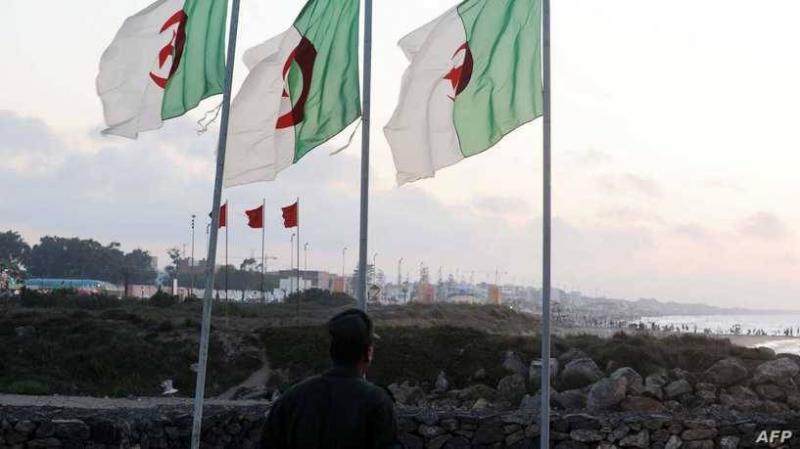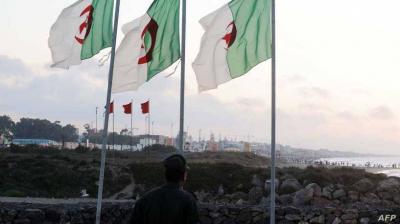After about two months since Algerian President Abdelmadjid Tebboune's statements that provoked anger in Morocco due to his "warnings" during an interview with a French newspaper, the Algerian military magazine published an article containing historical highlights in the region, accusing the neighboring kingdom of "treachery," amid rising tensions between the two countries. The magazine dedicated two pages in its recent issue to discussing these historical events, stating that there is a neighboring country "that operates and works against Algeria, not hiding its hatred and resentment, not just today, but for centuries."
On page 28, under the title "Fruitless Campaigns and Their Obvious Results," the magazine asked, "Who betrayed the Numidian hero Jugurtha in 104 BC and handed him over to Rome to be killed? Was it not 'Bocchus,' king of Mauretania? Which is Morocco today. Who turned against Emir Abdelkader in December 1847 and allied with the French enemy to besiege him? Was it not Sultan Moulay Abd al-Rahman of Morocco? And who betrayed the five leaders and reported them to France in October 1956, when their plane was heading from Morocco to Tunisia? Was it not the Moroccan crown prince? And who attacked our country in October 1963, with wounds still bleeding to occupy the cities of Tindouf and Bechar and annex them to his kingdom? Was it not the Commander of the Faithful King Hassan II?"
**"Wrong Timing"**
Algerian political analyst Fathi Ben Hamou told Al-Hurra that the timing of this commentary's publication is "wrong," adding that the country's borders are already "on fire," referring to the situation in Libya, which borders Algeria to the east, stating, "There is no need for further complications." Ben Hamou believes that diplomacy "should frame" the relations between Algeria and Morocco, indicating that "there are ambassadors to discuss these issues, and the army magazine should not delve into these matters." He added, "I see no benefit in discussing historical disputes now, even though there are events mentioned in the article that did really happen," but he pointed out the need for "historians to discuss them, not the army magazine." Ben Hamou noted that the magazine not only addressed the conflict with Morocco but also spoke about internal matters, particularly the popular movement.
**Context**
Political science professor at the University of Algiers, Othmani Belkacem, believes that what was mentioned in the military magazine "came at a time when Algeria felt that something was being plotted against it." In a conversation with Al-Hurra, Othmani indicated that the Algerian army is "performing the tasks assigned to it, which are to protect the country," emphasizing the necessity of placing what was published in the magazine in context since the military leadership sees that the country is targeted and he personally does not consider the comment as interference in diplomacy. Othmani clarified that the army "does not intend in any case to provoke escalation," stating: "One should not give another dimension to what was mentioned; all it contains are historical highlights that all Algerians know."
**"Malicious Propaganda"**
However, the historical narrative referenced by the magazine "lacks any objective scientific basis," according to Moroccan political analyst Khaled Chiyate. Chiyate expressed astonishment in his talk with Al-Hurra about the magazine’s focus on historical events, stating that it is "something both funny and sad," describing what was mentioned as "malicious propaganda." He questioned "the scientific authority that proved these events," asserting that the Algerian army "wants to understand everything and shows people only what it sees." Chiyate also questioned the true reasons behind what he described as "the Algerian army’s intrusion into this distant field of knowledge." He emphasized that "historically, Morocco and Algeria were part of an integrated area at a time when there were no states." He added: "They want to give the impression that Algeria has existed for a long time, but the reality is that it is a modern state." Chiyate recalled "Morocco's support of the Algerians during their struggle against the French (1954-1962), and before that during the Algerian people's resistance to France in the 19th century," reminding of the Battle of Isly in 1844. The Battle of Isly occurred near the city of Oujda between the Moroccan army and France on August 14, 1844, due to Sultan Moulay Abd al-Rahman's assistance to the Algerian resistance against the French colonizer. He concluded by saying, "It seems that Algeria has an intention to stir up the dispute, as it did 45 years ago by supporting an armed group against Morocco," referring to Algeria's support for the Polisario Front demanding the independence of Western Sahara. However, Ben Hamou confirmed that there is "a consensus in Algeria that the Western Sahara issue is just," and it represents "decolonization," advising to leave "historical matters to historians." No official Moroccan reaction has been issued regarding what was mentioned in the military magazine, while the Moroccan newspaper "Hespress" described the content of the Algerian military magazine as "historical distortion."




